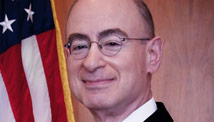When a loved one moves into a nursing home, the support of family and friends is particularly important. This is especially true when the nursing home patient has dementia and can't adequately advocate on 

his or her own behalf.
A newly released report from my office -- the Office of the Inspector General for the Department of Health and Human Services -- makes clear just how crucial it is for families to monitor and ask questions about medications that such patients receive. The report found that too often, elderly residents are prescribed antipsychotic drugs in ways that violate government standards for unnecessary drug use.
Frequently, they are prescribed in ways that don't qualify as medically accepted for Medicare coverage. In addition, the drugs were predominately prescribed for uses that are not approved by the Food and Drug Administration.
But the most potentially troubling finding of the study is this: Researchers found that 88% of the time, these drugs were prescribed for elderly people with dementia.
Many pharmaceutical companies have improperly promoted these drugs to doctors and nursing homes for years.
--Daniel Levinson
--Daniel Levinson
This is precisely the population that faces an increased risk of death when using this class of drugs, according to the FDA. That's why the agency puts its strongest safety warning, called a "black box warning" on these antipsychotic drugs, cautioning about the risk of death when taken by elderly people with dementia.
The report didn't investigate why patients with dementia are prescribed antipsychotic drugs so often. But a series of lawsuits and settlements that my office helped bring about suggests that many pharmaceutical companies have improperly promoted these drugs to doctors and nursing homes for many years.
The study began a few years ago, when a member of Congress questioned how many nursing home residents received a class of antipsychotic drugs introduced in the 1990s, among them risperidone and olanzapine. These drugs are known as "atypical" or "second generation" antipsychotics. They replaced the antipsychotic drugs introduced in the 1950s and 1960s to treat schizophrenia -- and, incidentially, are far costlier.
The report found about 305,000 nursing home residents (about 14%) had Medicare claims for atypical antipsychotic drugs. Of these, about one in five residents was prescribed these antipsychotics in a way that violated government standards for their use. For example, residents were on a drug for too long, or at too high a dose.
Another finding: A little more than half the antipsychotic drug claims for which Medicare paid should not have been covered. Why? The claimed drugs were not used for medically accepted reasons or there were no records the drugs were actually provided.
To be clear: Most physicians and nursing homes dispense antipsychotic drugs with the best interests of patients in mind. Physicians can use their medical judgment to prescribe drugs for uses unapproved by the FDA, and also to patients for whom the boxed warning applies. Ideally, however, doctors who prescribe in such ways first determine that the benefits outweigh the risks.
Yet it remains a concern that so many elderly nursing home residents with dementia are prescribed antipsychotics. And, unfortunately, examples abound of companies' improper promotion of these drugs.
Government investigations of Bristol-Myers Squibb, AstraZeneca and Pfizer found that they improperly promoted their antipsychotic drugs for unapproved uses.
Federal prosecution is pending against Johnson & Johnson for allegedly paying millions of dollars in kickbacks to induce Omnicare, the nation's largest long-term care pharmacy, to recommend the use of Risperdal in treating nursing home patients, many of whom had dementia.
And Eli Lilly pleaded guilty to criminal charges associated with illegally marketing its drug Zyprexa, including to doctors who treat elderly nursing home patients.
Pharmaceutical companies have paid billions to resolve civil and criminal liabilities under federal health and safety laws. But money can't adequately compensate for corporate campaigns that could put vulnerable, elderly patients at risk.
How do we solve this problem? There's plenty to do.
Family members of nursing home residents must learn about their loved ones' medications, the reasons for their use, proper dosages and possible side effects.
Nursing homes and pharmacies that serve the elderly must keep the best interests of the patient in mind when dispensing pharmaceuticals and not base the decision on the improper influence of drug companies.
Doctors, too, should rely on their best medical judgments and engage in an especially careful analysis when prescribing drugs for off-label use.
Government must combat illegal off-label promotion of these powerful and potentially lethal drugs and uphold nursing home safety standards.
And drug companies should follow the laws, and refrain from promoting drugs for unapproved uses -- or paying kickbacks to influence doctors and institutions. About 46 million people are enrolled in Medicare. That will only grow as the huge baby boomer population retires. We cannot afford to leave unaddressed the urgent problem of antipsychotic drug use among elderly nursing home residents.
The opinions in this commentary are solely those of Daniel Levinson.
No comments:
Post a Comment